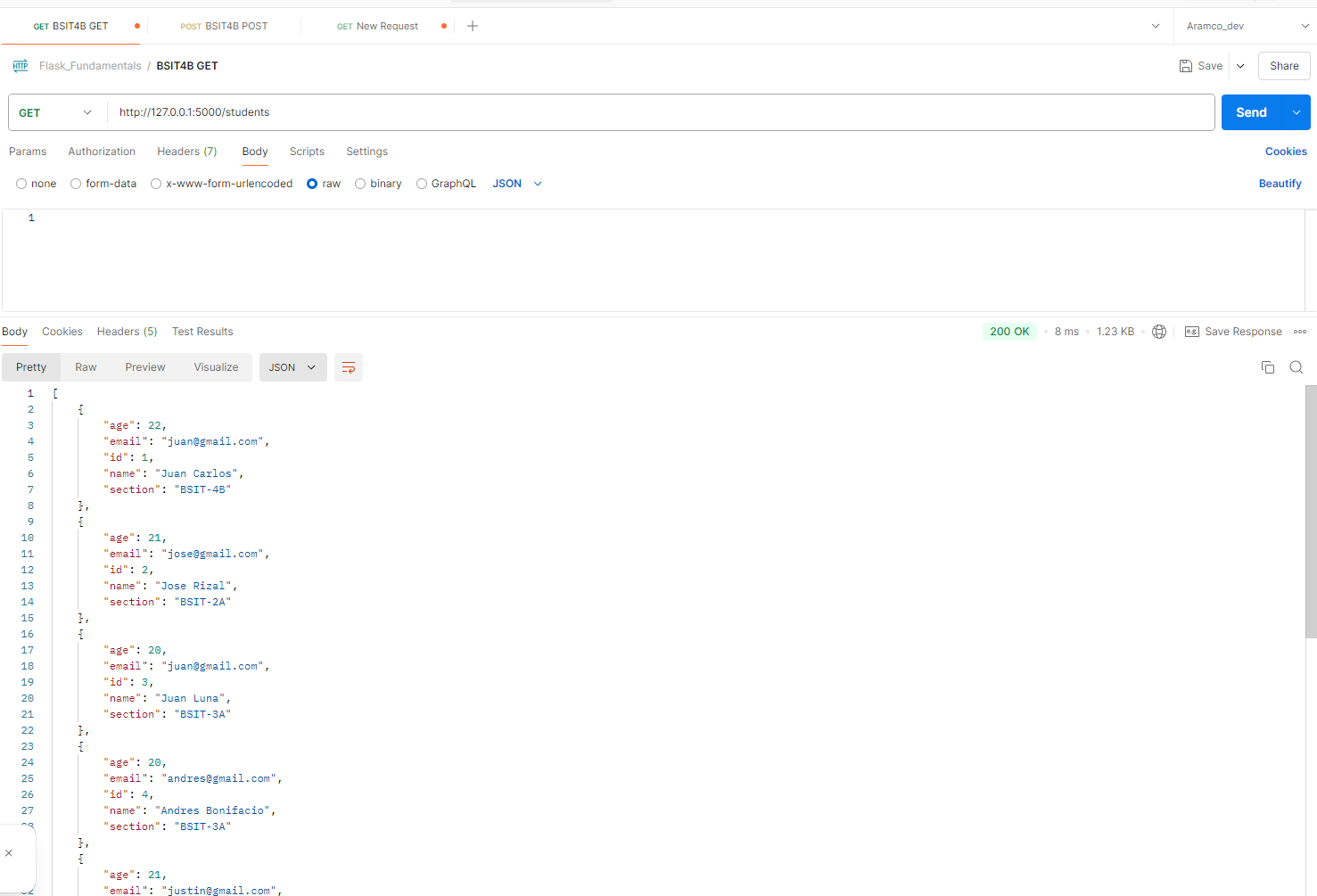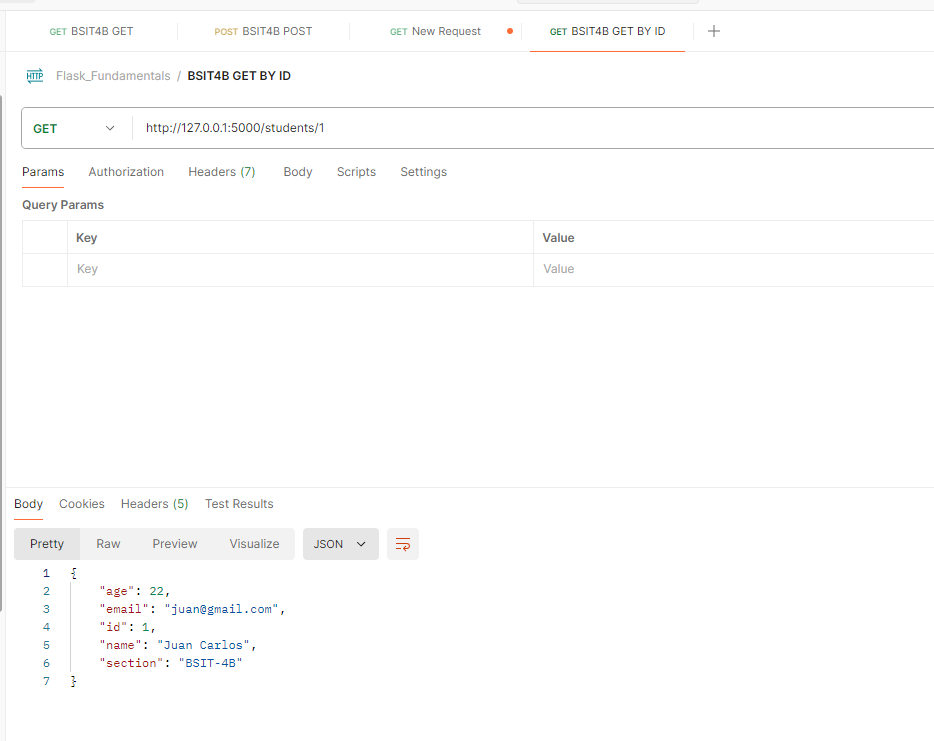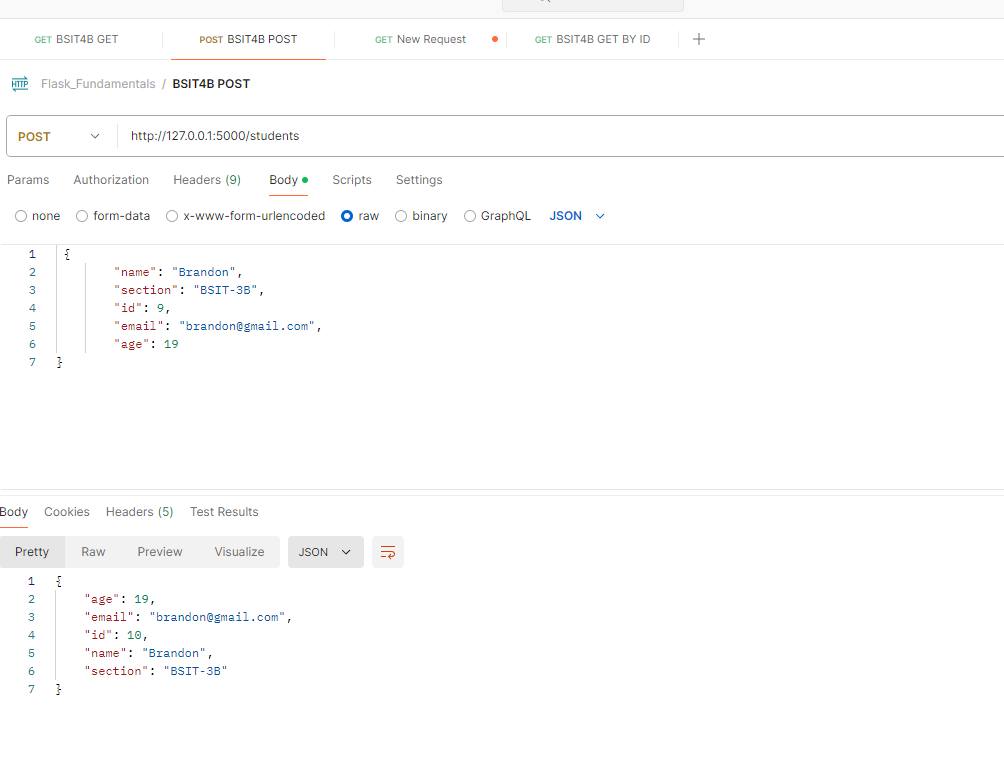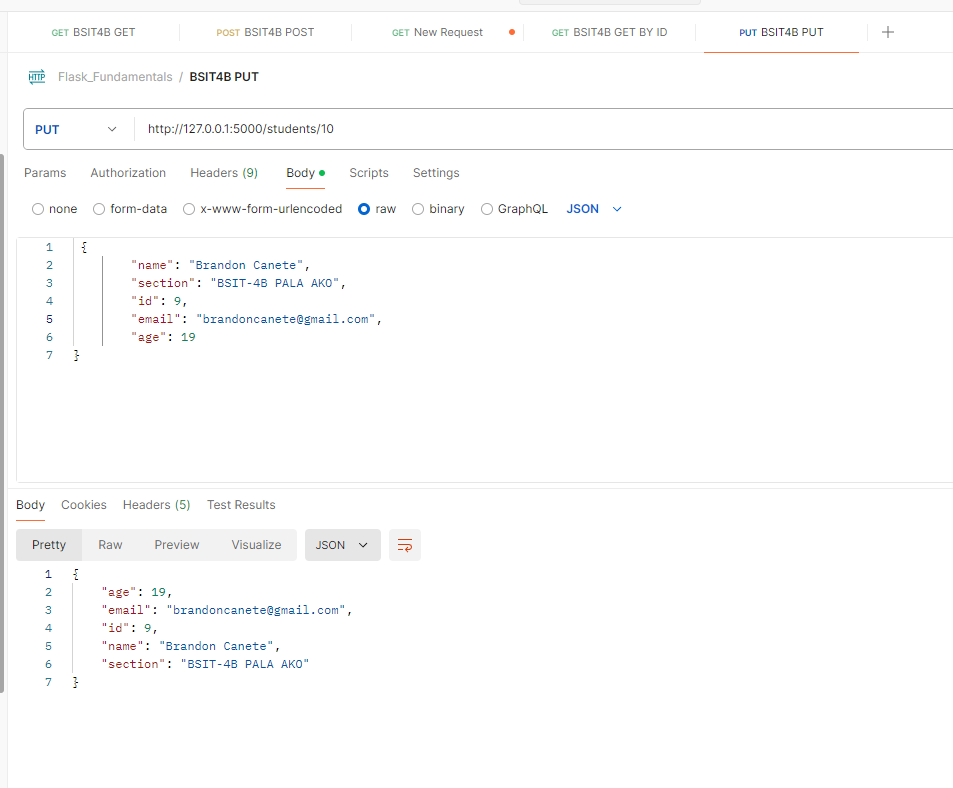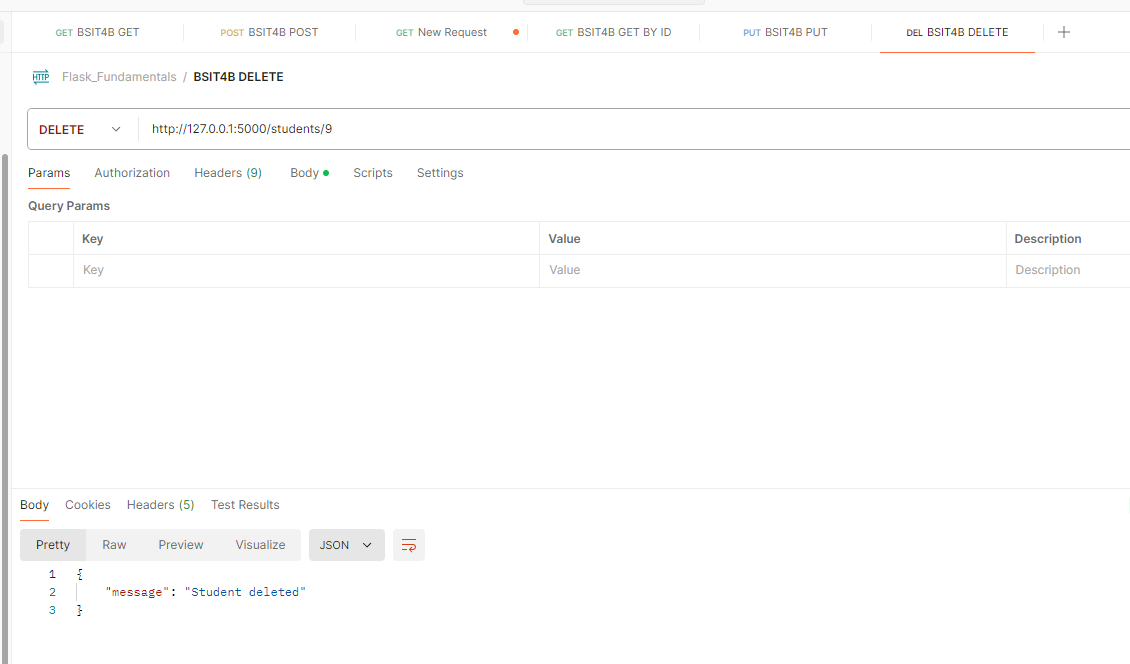Prerequisites
-
https://software-engineer.thirdygayares.com/virtual-environment-and-python-package-manager
-
https://software-engineer.thirdygayares.com/how-to-run-python-flask
-
https://software-engineer.thirdygayares.com/data-structure-again
-
Create a Python Virtual Environment
-
Activate Virtual Environment
-
make sure Flask is installed:
pip install FlaskBLUEPRINT
# TODO: import flask LIBRARY
from flask import Flask, jsonify, request
# call the flask object
app = Flask(__name__)
# create list of dictionaries
students = [{}]
# get method
@app.route('/students', methods=['GET'])
def get_students():
# get method : Get a specific student by ID
@app.route('/students/<int:student_id>', methods=['GET'])
def get_student(student_id):
# put method
@app.route('/students/<int:student_id>', methods=['PUT'])
def update_student(student_id):
# delete method
@app.route('/students/<int:student_id>', methods=['DELETE'])
def delete_student(student_id):
# Dont forget this
if __name__ == '__main__':
app.run(debug=True)-
Run the server by executing the Python script:
python app.py
from flask import Flask, jsonify, request
app = Flask(__name__)# Sample data: list of students
students = [
{
"name": "Juan Carlos",
"section": "BSIT-4B",
"id": 1,
"email": "juan@gmail.com",
"age": 22
},
{
"name": "Jose Rizal",
"section": "BSIT-2A",
"id": 2,
"email": "jose@gmail.com",
"age": 21
},
{
"name": "Juan Luna",
"section": "BSIT-3A",
"id": 3,
"email": "juan@gmail.com",
"age": 20
},
{
"name": "Andres Bonifacio",
"section": "BSIT-3A",
"id": 4,
"email": "andres@gmail.com",
"age": 20
},
{
"name": "Justin Bieber",
"section": "BSIT-2A",
"id": 5,
"email": "justin@gmail.com",
"age": 21
},
{
"name": "Michael Jordan",
"section": "BSIT-4A",
"id": 6,
"email": "michael@gmail.com",
"age": 19
},
{
"name": "Andrew Jordan",
"section": "BSIT-3A",
"id": 7,
"email": "andrew@gmail.com",
"age": 20
},
{
"name": "Jessa Boe",
"section": "BSIT-2B",
"id": 8,
"email": "jessa@gmail.com",
"age": 18
},
{
"name": "Ted Talk",
"section": "BSIT-3B",
"id": 9,
"email": "ted@gmail.com",
"age": 19
}
]@app.route('/students', methods=['GET'])
def get_students():
return jsonify(students)Get All Students (GET /students): Returns a list of all students in JSON format.
# READ: Get a specific student by ID
@app.route('/students/<int:student_id>', methods=['GET'])
def get_student(student_id):
student = next((student for student in students if student["id"] == student_id), None)
if student:
return jsonify(student)
else:
return jsonify({"message": "Student not found"}), 404Get a Specific Student (GET /students/<id>): Returns details of a student by their id.
@app.route('/students', methods=['POST'])
def add_student():
new_student = request.get_json()
new_student['id'] = max(student['id'] for student in students) + 1 # Generate new ID
students.append(new_student)
return jsonify(new_student), 201Add a New Student (POST /students): Accepts student details in JSON format and adds a new student with a unique id.
@app.route('/students/<int:student_id>', methods=['PUT'])
def update_student(student_id):
student = next((student for student in students if student["id"] == student_id), None)
if student:
data = request.get_json()
student.update(data)
return jsonify(student)
else:
return jsonify({"message": "Student not found"}), 404Update an Existing Student (PUT /students/<id>): Updates the details of a student by their id using JSON data from the request.
# DELETE: Remove a student by ID
@app.route('/students/<int:student_id>', methods=['DELETE'])
def delete_student(student_id):
student = next((student for student in students if student["id"] == student_id), None)
if student:
students.remove(student)
return jsonify({"message": "Student deleted"})
else:
return jsonify({"message": "Student not found"}), 404
if __name__ == '__main__':
app.run(debug=True)REMEMBER ADD THIS CODE
if __name__ == '__main__':
app.run(debug=True)Delete a Student (DELETE /students/<id>): Deletes a student by their id.
- Using Postman, you can test each endpoint by sending the appropriate requests.
This API provides a simple and clean structure to manage students' data with CRUD operations.
